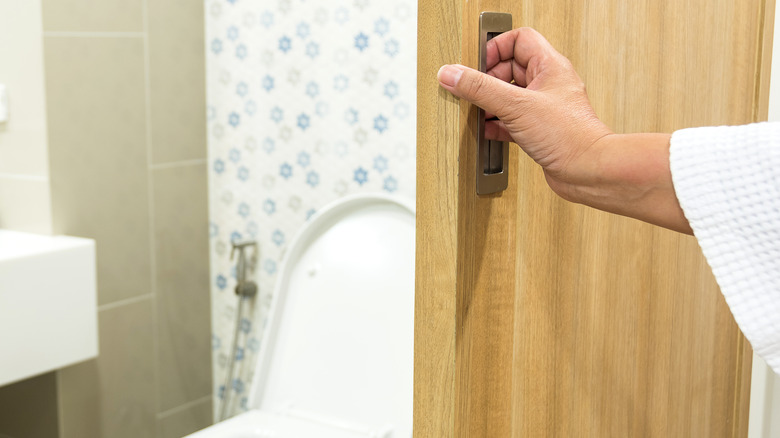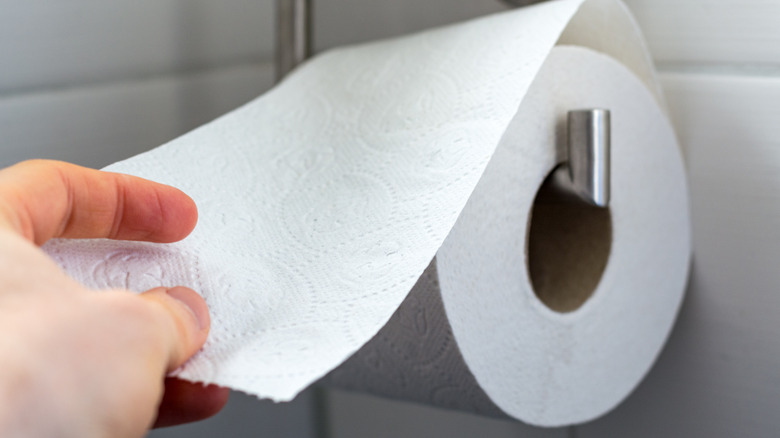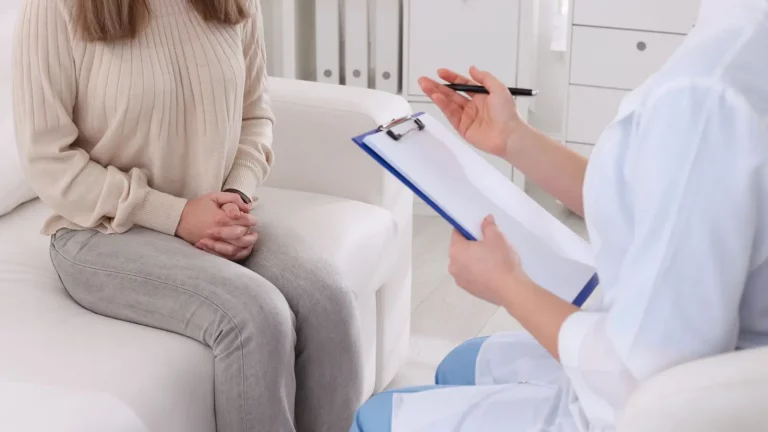
Normal, healthy poops are typically brown and emit a relatively unpleasant odor. Although our dietary choices might sometimes alter the scent of stool, the smell is generally predictable and consistent – or at least, it should be.
At times, changes in your poop’s smell can be more noticeable. Certain health conditions or medications might lead to stool smelling fishy, vinegary, or similar to household cleaning products, according to My Crohns and Colitis Team. Specific foods may also cause a significant change in the odor of your poop. For instance, meat, dairy, and alcohol can result in rotten egg-scented poops due to their high sulfur content. Depending on the cause, these changes might be temporary and not necessarily a cause for concern. However, if your poop starts to smell metallic, the causes can vary, with some being more serious than others.
Metal-scented poop may be a symptom of hemorrhoids, anal fissures, or diverticulitis

The metallic smell of poop likely originates from iron (via My Crohns and Colitis Team). While excessive iron intake – for example, through supplements – might be the cause, iron is also naturally present in our blood. Thus, if you detect blood in your stool after a bowel movement, it might be the iron smell your nose is detecting. This bleeding could result from hemorrhoids, which are swollen veins inside the rectum or around the anus. Hemorrhoids are fairly common, affecting roughly 1 in 20 people in the U.S., as reported by the Cleveland Clinic. Rectal bleeding is one of the more frequent symptoms.
Alternatively, a metallic smell might be due to bleeding from anal fissures, which are small tears in the anal tissue, explains the Mayo Clinic. Straining during bowel movements can cause anal fissures, and you might notice blood in the toilet or on toilet paper afterward. In more severe cases, waste with a metallic odor might indicate a condition called diverticulitis, characterized by inflamed or infected pockets in the intestines.
Treatment methods and when to speak to your doctor

Complications can occasionally occur from hemorrhoids and anal fissures, but both are often treatable at home. For hemorrhoids, maintaining good hydration, increasing fiber intake, soaking in warm baths, and using NSAIDs or OTC topical treatments may provide relief (via Cleveland Clinic). Home treatment for anal fissures is similar (per Mayo Clinic).
In cases of diverticulitis, additional symptoms such as constipation, diarrhea, nausea, fever, or varying degrees of pain on one side of the lower abdomen may occur (via WebMD). While severity can vary, it’s crucial to seek medical attention if you detect any potential symptoms of diverticulitis. Without treatment, it could lead to scarring, abscesses, perforations, severe bleeding, and more.
If you notice blood in your stool accompanied by a metallic odor, consult your doctor, especially if you experience additional symptoms like fever, pain, chills, cramps, unexplained weight loss, or other unusual symptoms.




